Focus on materiality
Climate change mitigation & adaption
The climate crisis is the threat of our times. Climate change mitigation and adaptation pose a considerable challenge, but also represent a major opportunity. One of those driving this topic internally is Dr. Helmut Frieden – Vice President Corporate Sustainability at Symrise. He is conscious of the need for companies to act to mitigate climate change and the necessity for the net zero strategy of Symrise, and also knows which are the biggest steps that have to be taken along the way.
To what extent is Symrise specifically addressing climate change mitigation and climate crisis adaptation?
“We are continuously defining new climate change mitigation measures and refining our targets. Since 2017, we have had our climate goals scientifically examined and endorsed by the Science Based Targets Initiative (SBTi) – in other words, they have been externally validated to determine whether they are consistent with the target of limiting global warming caused by the greenhouse effect to 1.5 °C. Symrise is therefore one of the world’s first 100 SBTi-certified companies and the first SBTi member in its industry. Our current goals are clear: In terms of Scope 1 and 2 emissions, we want to be climate-positive by 2030 – which means we intend to emit fewer emissions than we consume. And we want to reduce our Scope 3 emissions by 30 % so that we can play our part in achieving the climate goals set out in the Paris Agreement by 2045.”
»Since 2017, the Science Based Targets initiative has validated the climate goals of Symrise AG, which were confirmed with the highest ambition level in the most recent evaluation in 2022.«
What is the biggest challenge for Symrise on the path to net zero?
“When it comes to Scope 3 emissions, we have nearly 1.6 million tons of CO2 emissions to consider. An enormous effort is required to reduce these. That is why we are taking part in the CDP Supply Chain Program, which helps our suppliers to share their environmental goals and data. Herein lies the biggest challenge we face in the short term until 2030 and in the long term until 2045: Increasing the number of our suppliers within the CDP Supply Chain Program and improving their data quality.”
How have you integrated climate change mitigation into your corporate strategy?
“We have linked Executive Board remuneration to climate and sustainability key performance indicators (KPIs) since 2021. This way, we are incentivizing and anchoring the reduction of our emissions as well as climate change mitigation and sustainability measures within the personal goals of Executive Board members. The integration of climate change mitigation into our corporate strategy thus takes the form of a virtuous circle: We first define goals and KPIs, take the relevant measures and launch programs – and make their progress and success monetarily relevant for the Executive Board. Our Supervisory Board explicitly requested such an implementation and investors are also increasingly calling for the same.”
»Climate change mitigation and sustainability KPIs have been embedded in the personal goals of Symrise Executive Board members since 2021.«
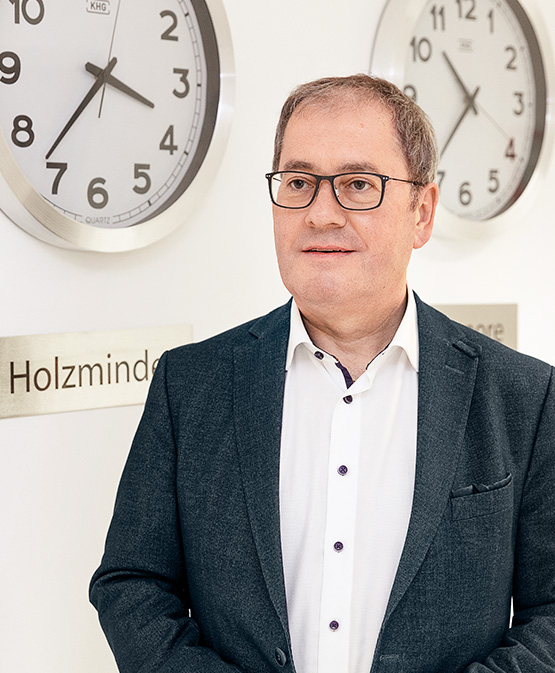
How do you raise awareness of climate change mitigation among your employees so that they in turn become key multipliers?
“We have appointed 150 Sustainability Ambassadors within our sustainability organization. They ensure that sustainability messaging gets passed down from the top, but also transfer ideas from employees upwards. Important topics are conveyed to and internalized by all employees thanks to the efforts of the Ambassadors. And the Ambassadors forward ideas proposed by mployees – to Idea Management. This approach has proven successful in scenarios such as reducing the thermostat setting from fall onwards and more efficient lighting systems. The feedback and response have been very positive. The employees then put these ideas into practice in their private lives as well – perhaps by considering what they might do with their own thermostats or lights at home.”
Environmental protection & biodiversity
Almost 80 % of the raw materials of Symrise come from natural sources. The climate crisis is associated with an enormous loss of biodiversity – and therefore has a direct impact on our core business. Eder Ramos, President of the Fragrance division and Chairman of the Union for Ethical BioTrade (UEBT), and Sascha Liese, Director Corporate Sustainability and a biodiversity expert, are responsible for the topic of natural diversity at Symrise.
How and why does Symrise intend to become a pioneer in the conservation of biodiversity?
Sascha Liese: “On the one hand, because customers, investors, consumers, civic organizations and, increasingly, governments expect companies like Symrise to avoid if possible or minimize their operational impact on biodiversity and ecosystems. On the other hand, because our business model has long been closely linked with biodiversity and ecosystems and we want to make sustainable use of the treasures nature has to offer in the future as well.”
Eder Ramos: “For myself as President of the Fragrance division, biodiversity serves as an invaluable source of raw materials and inspiration for the creation of unique fragrance compositions. It is therefore in our interest to play our part in conserving biodiversity and making use of its components in a sustainable manner.
That is why Symrise has also set itself the global goal of obtaining an increasing share of strategically important biological raw materials from verified sustainable sources. We are working closely on this with selected customers, suppliers and non-governmental organizations such as UEBT that are helping us to establish ethical and eco-friendly Standards in our supply chains.“
What are the greatest needs for action and challenges at Symrise when it comes to biodiversity?
ER: “We face a combination of challenges – economic ones, e.g. rising raw material prices and supply chain difficulties. Social challenges, e.g. demographics, migration and human rights. Environmental challenges: the climate crisis, water scarcity, soil erosion, pollution and their negative consequences on the productive force of the ecosystems in the countries where we source our natural raw materials. This is why it is of crucial importance that we as a company assert our principles and interests in terms of responsible raw material sourcing and use, to the benefit of people and nature, in these difficult times.”
What challenges, as well as opportunities, do you see in making your company’s impact on natural diversity (more) measurable?
SL: “The problem is that there is not one general indicator which can be used to measure biodiversity, and it is often not possible to directly quantify positive or negative changes in biodiversity at a local level as the indirect consequence of operational decisions. What we can already measure, evaluate and consider well in decision-making processes today is, for example, the conservation status of species and populations from which we obtain our raw materials and also the environmental integrity of growing regions. This also applies to the ecological footprint of raw materials and products – in the future, we will not only look at CO2, but also water consumption, land use and biodegradability. Another important aspect is the direct and indirect evaluation of the sustainability or unsustainability of farming and forestry practices, e.g. based on certifications, information from suppliers or on-site audits conducted by reliable partners with biodiversity expertise such as UEBT. All of these are helping us to identify sustainability risks at an early stage and take steps to deal with them.”
How does Symrise prepare itself for possible raw material shortages and how does the company want to use raw materials more efficiently in the future?
ER: “With respect to critical raw materials: By investing in the supply chain, no longer using particular materials on sustainability grounds, as we have already done in the past, and searching for alternatives in nature or investing in nature. Of course, other options would be to expand our supplier base, source from more countries and avoid the use of critical resources right from the start of product development through green chemistry and sustainable product design. There are many different approaches that can help to reduce the pressure on nature, ecosystems and biodiversity and may even have a positive impact on people and nature.”
The Union for Ethical BioTrade (UEBT) is an international nonprofit organization that promotes responsible sourcing of natural raw materials. It aims to support and verify the commitments and contributions of its member companies. Symrise has been a UEBT member for many years and Eder Ramos has been representing the UEBT Executive Board externally in his capacity as Chairman since June 2022.
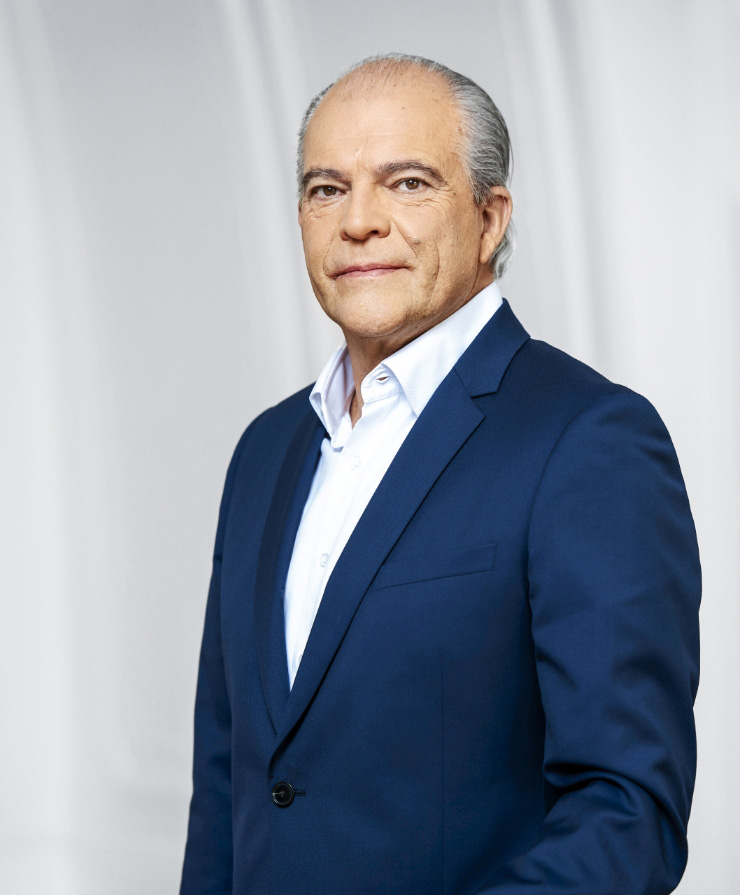
»It is crucial that we at Symrise assert our principles and interests in sustainable sourcing and raw material use, for the benefit of people and nature in these difficult times.«
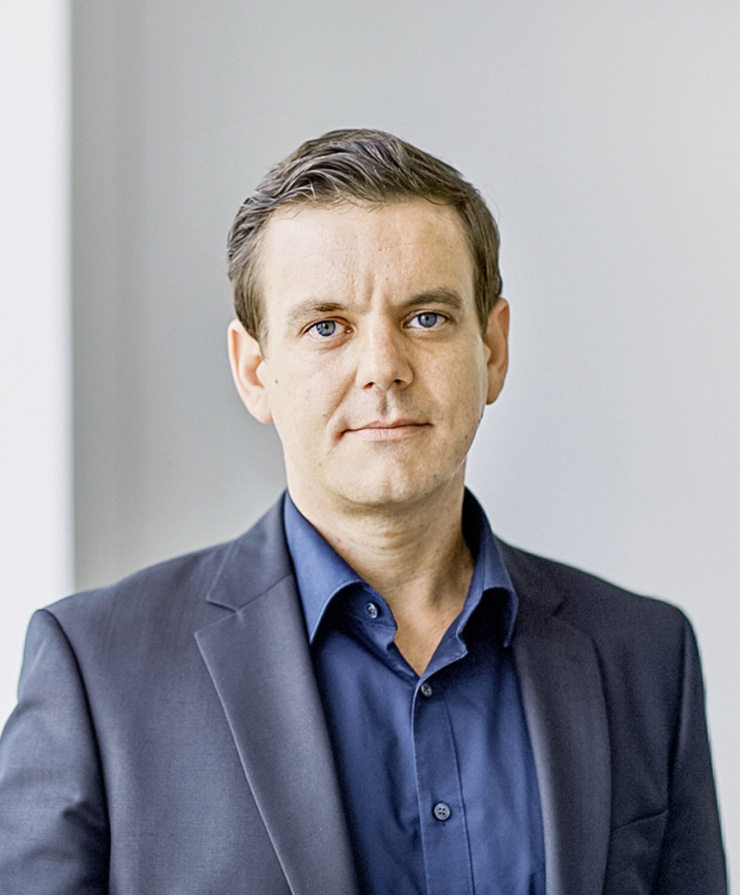
»We want to use nature’s treasury sustainably both now and in the future.«
Use of raw materials & recycling solutions
Natural raw materials are the basis of our products, but often only available in limited quantities. That is why our supply chains and the sourcing of raw materials must become more resilient, with closed material loops. Michael Klamm, Senior Vice President, Global Procurement, Scent & Care, at Symrise, explains what responsibility we bear in the “race for resources” and how Symrise is constantly working towards more sustainable resource use.
How do you see Symrise positioned in the race for resources?
“Symrise is definitely well positioned in this race. However, I can only speak for the Scent & Care division, and there are obviously some touch points with renewable resources there. The raw materials and the products that we use and manufacture, in North America for example, are derived from natural renewable resources. Take for instance artificial mint, which we produce for toothpaste and other products from a byproduct of orange juice production, namely the oils from the orange peel. This is one way in which we are contributing to resource conservation.”
»The revised Responsible Sourcing and Supplier Code of Conduct has served as a new guideline for suppliers and responsible sourcing at Symrise since 2022.«
How is Symrise specifically addressing the challenge of sustainable resource use?
“It is clear to us that we should continue to increase the share of products from sustainable resources. We have a team of engineers that is constantly optimizing the crude sulfate turpentine (CST) output of our suppliers so that we can increase the quantities of these resources. Crude sulfate turpentine, a natural oil obtained from conifers, is one of the biggest raw materials we purchase in Scent & Care – we therefore believe there is particular optimization potential here. We also support projects in various parts of the world where we work together with local farmers to improve their processes with a view to obtaining natural products. In addition, we empower other suppliers and engage closely with them on using more sustainable products as raw materials.”
How is the topic integrated into the corporate strategy?
“We aim to increase the share of our suppliers rated according to sustainability criteria – based on 90 % of the procurement volume – to 100 % by 2025. We are already at 93 % in this respect in Scent & Care. However, the company as a whole is not yet at this level. That is why we published a revised and very detailed policy, the Responsible Sourcing and Supplier Code of Conduct, in 2022. We require our suppliers to comply with these guidelines. At the same time, this is good preparation for the Supply Chain Due Diligence Law (LkSG), which takes effect from January 2023.”
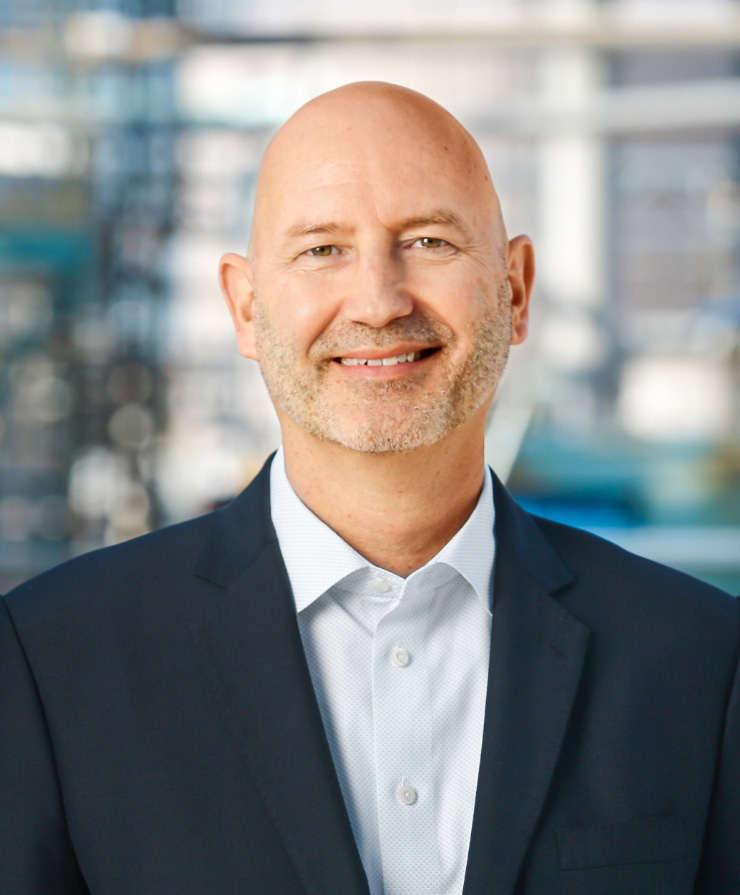
»The Scent & Care procurement department at Symrise increased the share of its suppliers evaluated according to sustainability criteria to 93 % in 2022.«
You can improve your customers’ sustainability performance by optimizing packaging and making it more sustainable, avoiding destruction and consolidating shipments. How are you already addressing these aspects?
“Wherever possible, we always buy in the largest packaging size or in bulk commodities and we never stop looking for ways to improve: For example, we get various deliveries during the week from one supplier, which we consolidate. We carry out such consolidations wherever possible. We are also constantly optimizing the freight and shipments to our customers.”
Sourcing & human rights
Our supply chains are complex and extensive. It is therefore all the more important to clearly define general conditions for responsible sourcing and the protection of human rights. Ms. Gattermann, Director Corporate Sustainability and a member of the Responsible Steering Committee, explains what these guidelines look like in practice and how Symrise is addressing current challenges.
How is Symrise addressing the two-fold challenge of respecting human rights while ensuring materials are sourced in the most eco-friendly way?
“Achieving full transparency and traceabil ity across our extensive supply chains – we purchase more than 10,000 raw materials – is a challenge. The LkSG covers not only raw material suppliers, but also all of our own operations and what are known as ‘indirect spend’ supply chains. This further increases the complexity and scope.
Symrise has taken a number of steps, including establishing a due diligence approach, in order to obtain more information about our suppliers’ business practices in addition to the various audit stages – also in view of the risks specific to the respective countries and sectors. Before a supplier is even accepted, we ask about its business practices and its policies on anti-discrimination, child labor and workers’ rights and protections. We also request information on environmental aspects. If the identified risk is considered high, we conduct further evaluations, up to and including on-site audits. Before doing business with suppliers, we require assurance from them that they will comply with our supplier code, which explicitly sets out our expectations of suppliers.”
What might a cross-divisional approach look like at Symrise in view of the LkSG? How can the various segments learn from each other in this regard?
“Our responsible sourcing strategy and management approach generally relate to suppliers and are independent of the segments. However, the experiences of the segments and the operational procurement areas are very valuable, as they have a better understanding of the general conditions that may lead to risks (root cause) on account of their close relationships and experience with business partners, also on-site. More targeted prevention or mitigation measures can then be drawn up. In addition, the segments are in close contact with suppliers and are able to directly address problems or work on improvements with them due to their long-standing relationships.”
In which areas of your supply chain do the biggest challenges still lie? How are you addressing these?
“On the one hand, we want to create more transparency in upstream supply chains – meaning with regard to our suppliers’ suppliers. This primarily requires good collaboration and strong mutual trust with suppliers. On the other hand, there has to be greater transparency in respect of ‘indirect procurement expenditure.’ This means all purchases that are important to keeping a business running but do not go directly into the product. We are currently working with our colleagues in Technical Purchasing on new and pragmatic solutions for reviewing service providers in a wide range of sectors – also in close collaboration with Sedex. We can make much more progress quickly when we work together on these matters rather than alone.”
How can Symrise further increase its impact on sustainability matters beyond the company by encouraging others to improve their performance in this area?
“There is potential for this in the supplier / customer relationship: If both sides are interested in collaborating and growing in the long term, then the willingness of suppliers to improve represents a mutual advantage. After all, we are not the only ones who benefit when there are fewer risks in relation to our products and the employees in the relevant supply chains. Suppliers themselves also gain by becoming a more interesting partner for other customers through this. Also, there is potential in respect of Scope 3 emissions: We have the greatest climate impact through our products. That is why we are working on incorporating our downstream supply chains into our reduction plans as well, so that we can have an even greater impact there.”
Are you already encouraging suppliers to implement climate-relevant measures?
“We work with the CDP Supply Chain Program and invite further suppliers from our portfolio every year so that we can also encourage them to sign up for reduction targets and disclosure. Through our Bridging The Gap projects – where we work with selected suppliers in a multi-stakeholder engagement – we also attempt to establish sustainable products and cultivation practices in agriculture by providing training to farmers and involving local communities.”
»Greater transparency in upstream supply chains and indirect procurement expenditure, aside from raw materials, as a particular challenge and opportunity.«
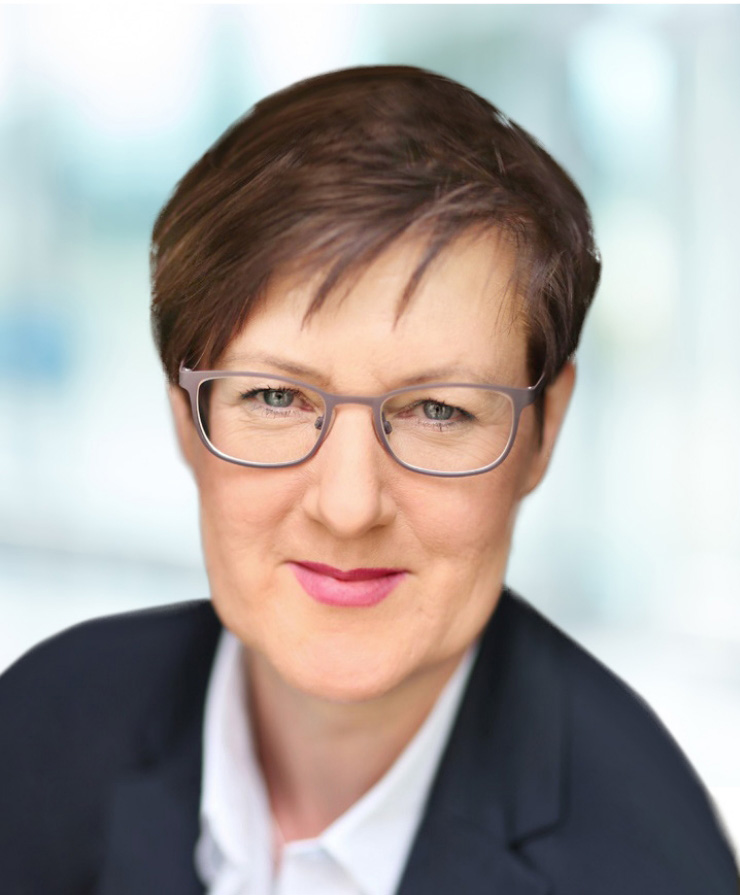
»226 Symrise suppliers participated in the CDP Supply Chain Program in 2022. That represents an increase of almost 40 % over the previous year.«